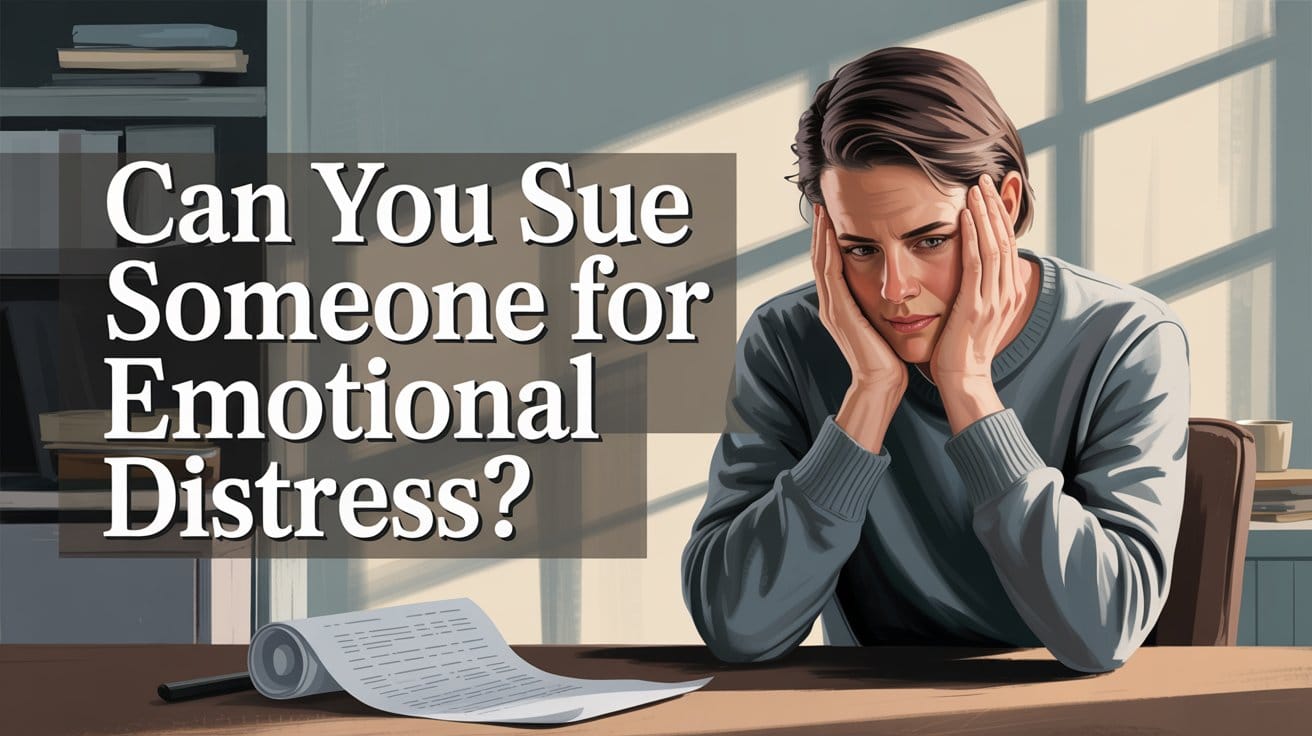The question, “can you sue someone for emotional distress in Michigan?” is one we hear often. Experiencing intense emotional or psychological harm due to another person’s actions can be as debilitating as a physical injury. Michigan law does allow individuals to seek compensation for emotional distress in certain situations, but the rules can be complex. The Joseph Dedvukaj Firm, P.C. helps clients navigate these claims.
While a minor upset or temporary sadness generally isn’t enough for a lawsuit, significant emotional harm – such as anxiety after a serious car crash, depression following a traumatic event, or ongoing fear due to an assault – might be grounds for legal action.
Understanding Emotional Distress Claims in Michigan
There are generally two main ways you might pursue a claim for emotional distress in Michigan:
- As Part of a Personal Injury or Wrongful Death Claim (Parasitic Damages): This is the most common way people recover damages for emotional distress. If you’ve suffered a physical injury due to someone’s negligence – for example, in an auto accident, a slip and fall accident, or due to a dog bite injury – compensation for your emotional suffering (often called “pain and suffering“) can be included as part of your overall damages. This also applies if you are eligible to file a wrongful death claim for the loss of a loved one, where the emotional impact on survivors is a key component. The emotional distress is “parasitic” to the physical injury or the wrongful death itself. For more information, see our blog on claiming damages for PTSD after a car accident.
- As a Standalone Claim (Intentional or Negligent Infliction of Emotional Distress): It’s more challenging, but sometimes possible, to sue for emotional distress even without a direct physical injury to yourself. Michigan recognizes:
- Intentional Infliction of Emotional Distress (IIED): This requires proving the defendant engaged in “extreme and outrageous” conduct that intentionally or recklessly caused severe emotional distress. The conduct must be so shocking that it goes beyond all possible bounds of decency. Examples might include severe harassment, public humiliation of an extreme nature, or credible threats of serious violence.
- Negligent Infliction of Emotional Distress (NIED): This is more limited in Michigan. Typically, to recover for NIED if you were not physically harmed yourself (a “bystander claim”), you generally must have witnessed a sudden, brief, and violent accidental injury to a close family member (spouse, child, parent, sibling, grandparent) that caused the family member death or serious impairment, and you suffered serious emotional distress as a result. There are specific criteria to meet, for which you should consult a personal injury lawyer.
What Kind of Proof is Needed to Sue for Emotional Distress?
Whether your claim is for IIED, NIED, or emotional distress linked to a physical injury, you’ll need to provide evidence. This can include:
- Medical Records: Documentation from doctors, therapists, psychologists, or psychiatrists detailing your diagnosis (e.g., anxiety disorder, PTSD, depression), treatment, and prognosis. A traumatic brain injury, for example, often has significant emotional and psychological consequences.
- Testimony: Your own account of how the emotional distress has impacted your daily life, relationships, ability to work, and enjoyment of activities.
- Witness Testimony: Statements from family, friends, or colleagues who have observed the changes in your emotional state and behavior.
- Severity: The emotional distress must generally be severe. Mild or temporary emotional upset is usually not enough. The law looks for distress that a reasonable person would find difficult to endure.
Our blog post, “Can I sue for emotional injury after a car accident? What you need to know,” provides further insights.
Compensation for Emotional Distress
If your claim is successful, the compensation (damages) awarded for emotional distress aims to acknowledge the intangible harm you’ve suffered. This can cover:
- Mental anguish
- Anxiety, depression, fear
- Loss of enjoyment of life
- Sleep disturbances
- Humiliation
- Costs of therapy and counseling
The amount of compensation varies greatly depending on the severity of the distress, the nature of the defendant’s conduct, and the strength of the evidence. Understanding negligence in Michigan is key if the distress stems from another’s carelessness.
Do I Need an Attorney to Sue for Emotional Distress?
Claims involving emotional distress, particularly standalone IIED or NIED claims, are legally complex and often challenging to prove in Michigan. An experienced attorney can:
- Evaluate the specifics of your situation.
- Explain your legal options under Michigan law.
- Help gather the necessary medical evidence and testimony.
- Build a persuasive case demonstrating the defendant’s fault and the severity of your emotional harm.
- Negotiate with insurance companies or represent you in court.
If you are suffering significant emotional distress due to someone else’s actions, it’s important to understand your rights.
Discuss Your Emotional Distress Claim with a Michigan Attorney
At The Joseph Dedvukaj Firm, P.C., we understand the profound impact emotional harm can have. If you believe you have grounds to sue someone for emotional distress in Michigan, contact us for a free and confidential consultation. We can review the details of your situation and advise you on the best course of action. Call us at 248-885-6614.


